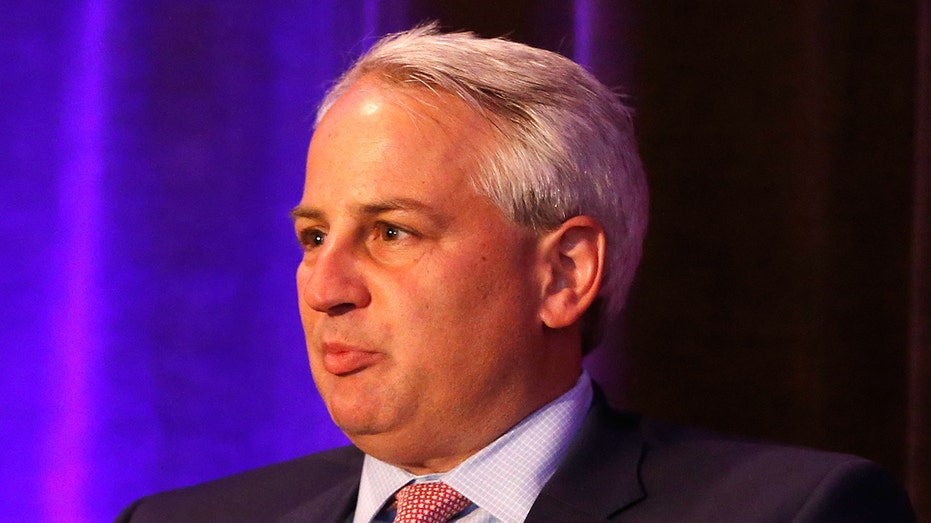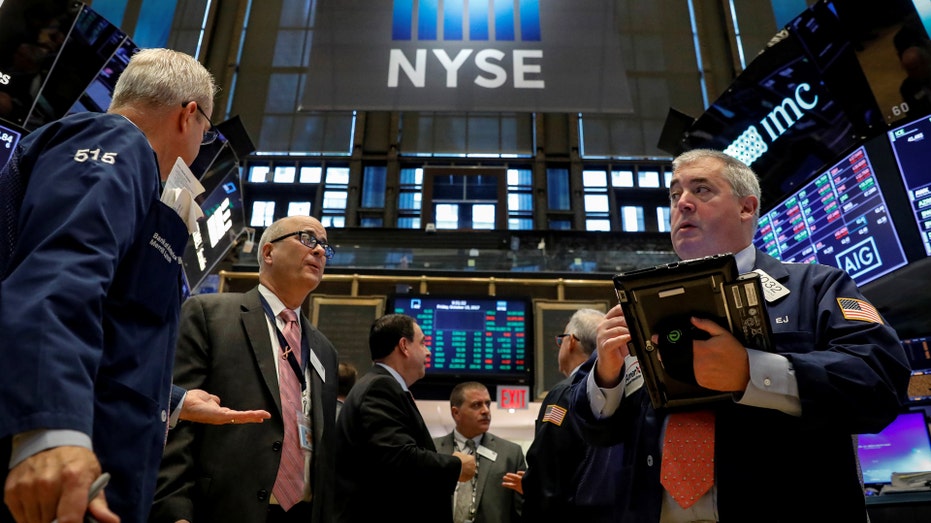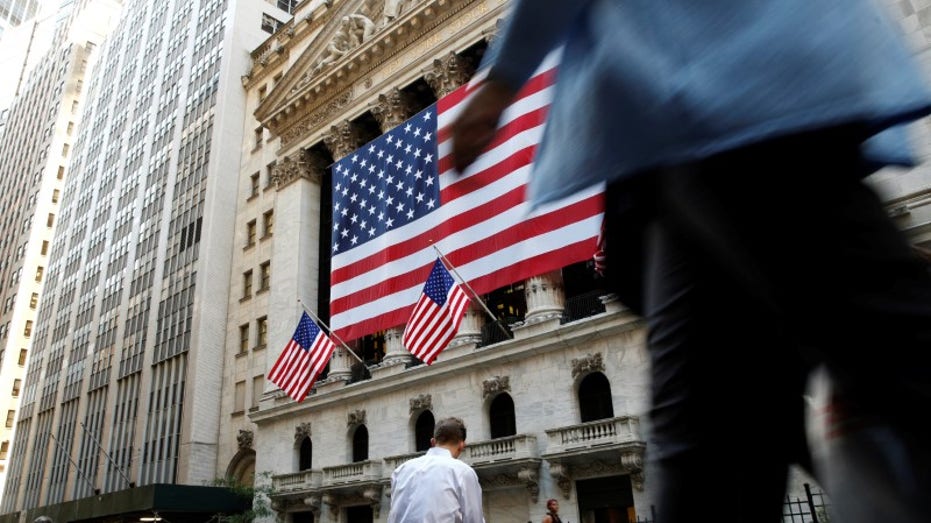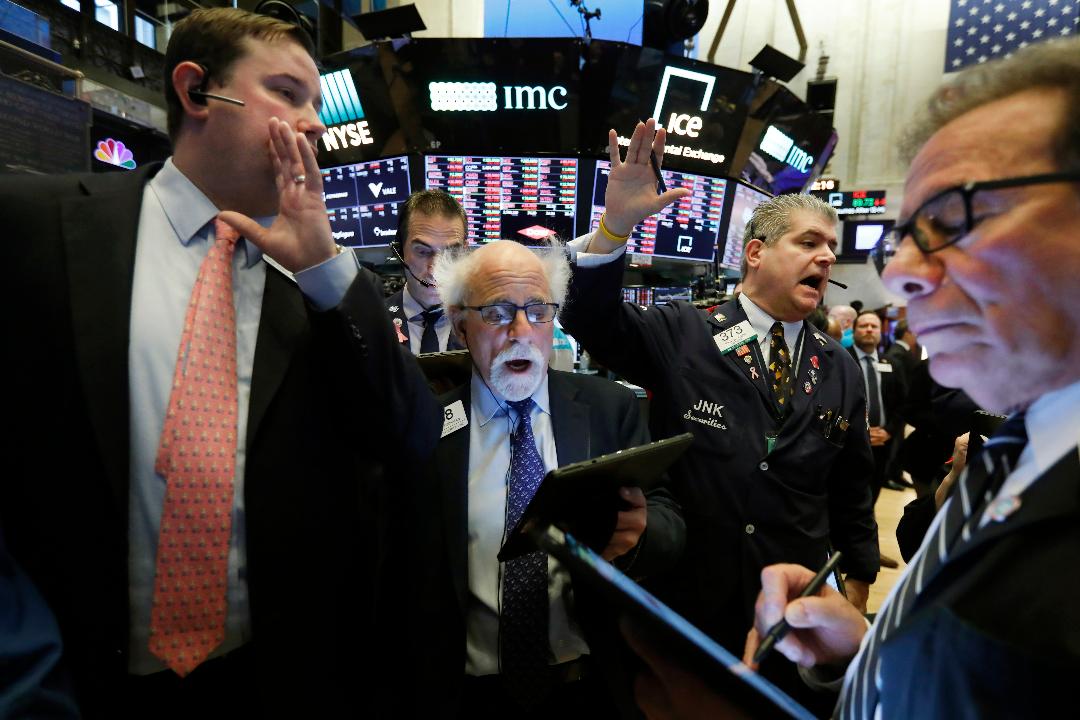CEO of major NYSE trading firm once said floor should be shut down, now raising issues about 'Big Board's' virus response
The chief executive of one of the New York Stock Exchange's top trading firms said that the human element of the Big Board's operations, the so-called floor, "should be shut" because it's a "complete vestige of an earlier day" and that it exists mainly as a "TV studio."
The comments by Doug Cifu, chief executive of Virtu Financial, an electronic trading firm that serves as a major NYSE "designated" market maker, are surprising for their candor about the exchange's business model that touts the combination of electronic trading and humans to provide better price discovery for stocks than any of the myriad fully electronic competitors, including its chief rival, the Nasdaq stock market.

Florida Panthers co-owner Doug Cifu speaks during the commissioner's luncheon at Ritz Carlton on June 26, 2015 in Ft. Lauderdale, Florida. (Photo by Eliot J. Schechter/NHLI via Getty Images)
NYSE CHECKS VISITORS' TEMPERATURES AMID CORONAVIRUS CONCERNS
But Cifu's unusually blunt assessment, made at a 2016 securities conference, now raises serious questions about whether the NYSE waited too long to suspend its floor operations amid the coronavirus contagion. For weeks, as the virus pandemic spread through New York City, critics have stated that the NYSE's decision to keep the floor open until recently had less to do with maintaining orderly markets and more to do with maintaining its marketing advantage in the fiercely competitive business of attracting companies to list on the exchange.
| Ticker | Security | Last | Change | Change % |
|---|---|---|---|---|
| DJIA | GLOBAL X FDS DOW 30 COVERED CALL ETF | 22.48 | +0.03 | +0.13% |
| NDAQ | NASDAQ INC. | 86.30 | +1.47 | +1.73% |
| SPX | NO DATA AVAILABLE | - | - | - |
As first reported by FOX Business, after weeks of saying it planned to keep the exchange floor open, the NYSE announced Wednesday it will temporarily close the floor starting next Monday, and did so only after two of its people tested positive for the potentially lethal virus.
HOW TO NAVIGATE CORONAVIRUS BEAR MARKET IN STOCKS
While Cifu's comments were not made in reference to the current crisis, they lend support to those saying the NYSE's floor closure came too late because floor trading isn't essential to the exchange’s operations. During the conference, Cifu said the actual NYSE is located in "Mahwah, N.J.," the headquarters of its electronic trading system.
| Ticker | Security | Last | Change | Change % |
|---|---|---|---|---|
| VIRT | VIRTU FINANCIAL INC | 39.26 | +0.73 | +1.89% |
A spokesman for the NYSE, Josh King, declined to comment on whether the exchange should have closed the floor sooner. He also declined to comment directly on Cifu’s remarks.
“The NYSE trading floor is vital, as is the human judgment exercised on it by members of our floor community throughout the trading day," King said in a statement. "It’s a fact that the NYSE market model reduces volatility compared to other venues. The temporary move to all-electronic trading, as part of our business continuity plan, is a reflection of the environment we’re all living in right now, but we’ll resume operating in our normal fashion as soon as practicable.”
Cifu’s comments, which have not been reported, were made at a Nov. 3, 2016 conference hosted by TD Securities in Toronto, a partial recording of which was reviewed by FOX Business. A spokesman for Virtu had no comment, but would not dispute the authenticity of Cifu's remarks.
CORONAVIRUS OUTBREAK TO CAUSE SHARP CONTRACTION IN US ECONOMY: GOLDMAN SACHS
Floor trading activity has declined sharply in recent years as electronic trading replaced humans in the market-making process; today just 500 traders and support staff work on the floor, down from several thousand during its peak. Still, the NYSE has sought to maintain a semblance of human interaction and has used the floor with its gaggle of live traders scurrying around with hand-held devices as a differentiator when pitching business.
In fact, Cifu described those traders as little more than stage props to help the exchange attract lucrative listings of companies' stocks and initial public offerings. The NYSE earns tens of millions of dollars in fees from companies to have their stock listed on the exchange.

Traders work on the floor of the New York Stock Exchange (NYSE) in New York, U.S., October 13, 2017. REUTERS/Brendan McDermid
Companies often seek a NYSE listing because their brands can be touted during the exchange’s widely televised opening and closing bells that for decades have provided some of the most iconic images in global finance. And those listings are expensive: The exchange charges companies as much as $500,000 to list their stock and tens of thousands of dollars each year to maintain the NYSE imprimatur. The Nasdaq charges just $80,000 and has far lower annual fees.
GET FOX BUSINESS ON THE GO BY CLICKING HERE
"If I could get our guys on the floor to like do something during the day that was more productive – volunteer at a soup kitchen or something like that – I would do it," Cifu said amid laughter from the 100 or so participants at the event. When the conference moderator asked Cifu if the floor traders and market makers provide meaningful liquidity for stocks, he added: "Nothing happens on the floor. No one has ever come up to our booth except the pizza man in the last three years."
Indeed, the NYSE's electronic component handles the vast majority of trading and can even execute orders at the open and close of trading when floor traders and market makers are the most active. Cifu described Virtu's presence on the floor as one of four so-called designated market makers that are supposed to maintain orderly trading in stocks as "advertising."
"The floor should be shut," he said. "I’ve told New York [Stock Exchange] that as well. I mean we’re there because we’re a market maker and to me it’s advertising. Occasionally you see the guy with the Virtu jacket and our shareholders like it."
Most television networks, including FOX Business, maintain a camera at the exchange; some like CNBC rent space and have erected elaborate studios to report on daily trading particularly during times of intense market volatility, as is occurring with the current coronavirus pandemic. Live reporting from the floor will also end as the floor closes temporarily.

People sit outside the New York Stock Exchange (NYSE) during the morning commute in New York City, U.S., September 15, 2016. REUTERS/Brendan McDermid
The question is whether such scenes are necessary in a time of crisis and whether the NYSE made a brash business decision in keeping the exchange open for as long as it did, as competitors such as Nasdaq have pointed out.
As regulators and Wall Street executives weigh the NYSE's response to the virus, Cifu's assessments about the necessity of the floor will likely carry more weight since Virtu is one of the Big Board's most important strategic partners. For weeks, as the novel coronavirus spread throughout the country, the NYSE brushed aside suggestions to close the floor while other financial firms in Manhattan began to have most of their employees work from home, with only the most essential staff coming into the office.
CLICK HERE TO READ MORE ON FOX BUSINESS
The NYSE, for its part, stated the floor was essential to maintain continuity of trading at one of the world's largest stock markets where, according to its marketing materials, "it's the human element at NYSE that results in lower volatility, deeper liquidity and improved prices.”
When FOX Business ran a story that said the NYSE was testing its electronic exchange in the event of a floor shutdown, an exchange spokesman called its reporting "irresponsible."
That said, floor traders have been among those most vocal in criticizing NYSE President Stacey Cunningham for until Wednesday maintaining full-floor operations. After complaints from floor brokers that the NYSE maintained its business-as-usual approach, including allowing visitors inside, the exchange’s management began taking steps to minimize such interactions, like preventing visitors from walking the floor.
As the NYSE geared up for a closing of the exchange – the first significant one since the 9/11 terror attacks closed it for six days – some traders described the situation as chaotic. Traders also questioned why the exchange is waiting until Monday to shut down floor operations instead of doing so immediately, unless its electronic trading platform isn't fully ready.
Cifu suggested that the exchange likes having floor traders in the mix because it "is selling a product ... is selling a listings business. I mean, frankly, I think the fair thing to do is they should be paying the [traders] for being actors on the floor."




















